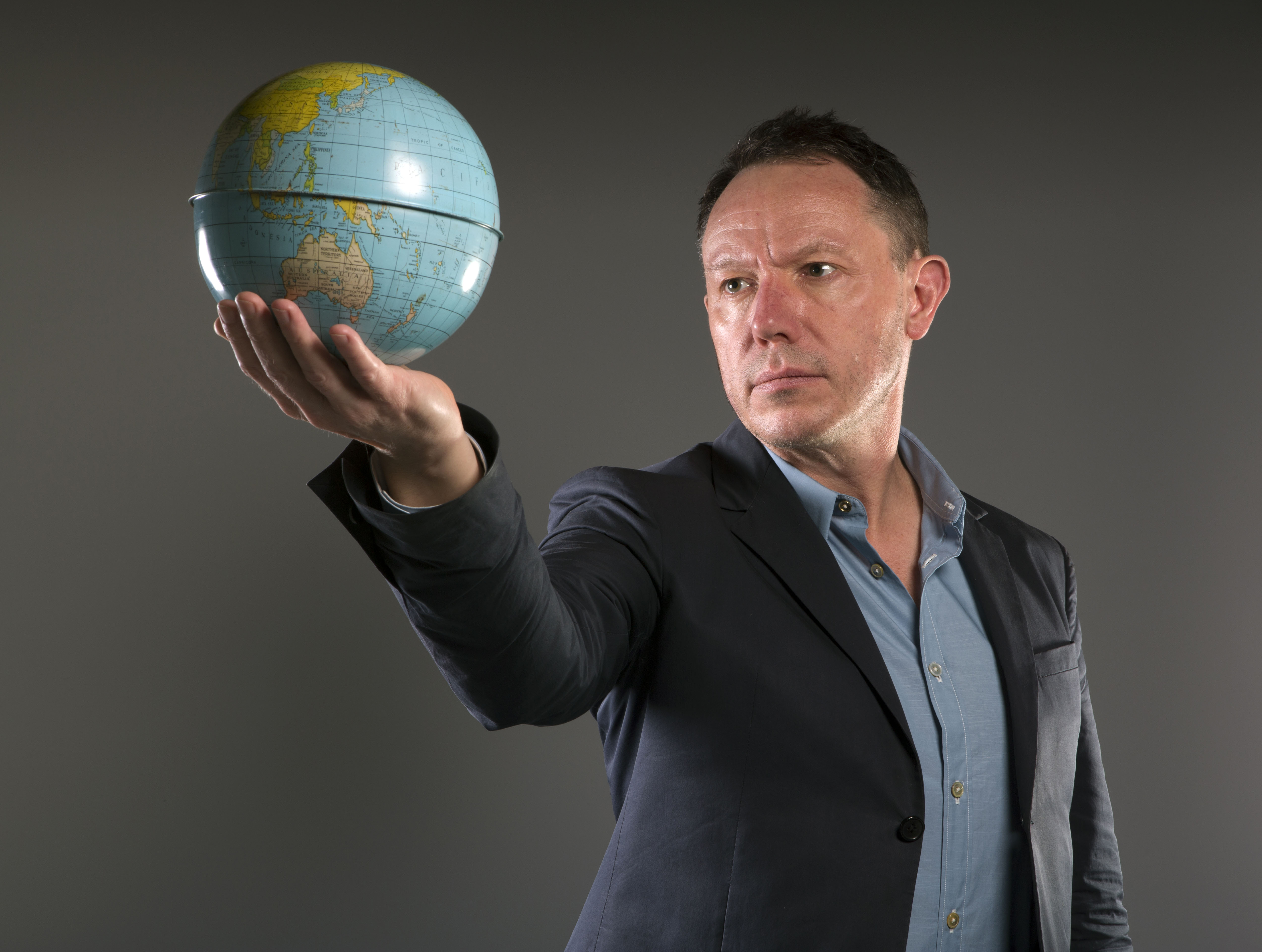Why do you think scientists and politicians have been slow and reluctant to confront population growth? It might be useful to first distinguish between growth and behavior. The problem is less the current number of us in itself (yet) but more the way the majority of the 7 billion of us live and consume. This is principally the cause of almost every global problem we face. Critically, every one of these problems is set to accelerate as we continue to grow. "Confronting," as you put it, the way we live and consume is not something that politicians want to do.
Doing so would be immensely unpopular. And politicians do like to be popular. Indeed, our entire political systems are set up for the opposite: to promote and encourage us to increase our consumption and irresponsible behavior. And as for scientists — my colleagues, I should add — well, the vast majority choose to do what I have chosen not to do; to keep their heads well below the parapet on this lot.
Do you think Thomas Malthus was wrong only in terms of timescale? Malthus was wrong about many things. Indeed the chap held a fairly broad range of opinions which fell into the "dubious to odious" categories. But on the issue of population, his basic argument — that when the population exceeds the means to sustain it, the result is going to be "misery" (in Malthus's words) — is one that remains remarkably difficult to reject. It's interesting that he wrote this despite being witness to the benefits of the agricultural revolution, and the emergence of the industrial revolution, which to most were seen as "a new age" of human progress. So, was he wrong only in terms of timescale? Well, he doesn't really set out a timescale in his 1798 "An Essay on the Principle of Population," so the answer has to be no.
When did you first become engaged with these issues? Was it something you dwelt on, growing up in Yorkshire? Up until a decade ago this was not natural scientific territory for me. I am a neuroscientist by training. But my life for the past decade has been devoted to creating and leading a new laboratory that is dedicated, in large part, to better understanding the systems we all rely upon, and which are changing rapidly: the climate, the global carbon cycle, the planet's ecosystems. And although I don't have a particularly optimistic view of our future, I do think that as a scientist, I have a responsibility to do all I can to try to find solutions. So we also do research into energy, specifically a potentially radical new form of energy — artificial photosynthesis, and into "programing life" — that is, the rational design of biological function, to, for example, "program" plants to be resistant to water stress, pests and fungal diseases.
Is your conclusion, that essentially "we are f——-," a good place to start the debate from?
The problem is that I don't see much debate happening. So it's hardly surprising that I think we're f——-. The whole point in writing the book is to try to get us to think about the problems we face in a way we just haven't thought about them before, and hopefully to act as a catalyst for a global debate. But this needs to be a different debate than just some one-dimensional discussion about "population" or "climate" or "going green." The debate we urgently need to have is about us — about how billions of us live, behave, consume irresponsibly, about how billions more want to live, behave and consume. And about how another 3 billion that have not yet been born will, or want to, do the same.
You mention that your lab is engaged in replicating photosynthesis. How close to that goal are we?
Not as close as I would like to be, that's for sure. We have a research effort under way in artificial photosynthesis, in collaboration with some brilliant colleagues at the Cavendish Laboratory at Cambridge University. I am aiming to have a proof of concept of a scalable system in under five years.
Ours is not following the typical approach, that of the search for a solid-state material to split water and extract the resulting hydrogen, but the direct production of electricity by exploiting the kind of quantum-coherent effects that photosynthetic organisms (plants and bacteria) employ. I think this is a better direction to pursue, but it is also an incredibly ambitious one.
If you had been around the table at the G-8 last week, what three priorities would you have been pressing for?
First, to get all those chaps to get their ties put back on, ASAP. It just looks wrong, that open-shirt caper. Or perhaps to have taken Barack to one side, quietly, and remind him that the chancellor is not called Jeffrey. Can I have four? Anyway, the two most important priorities would have been to urge them to treat the situation we are in with the same urgency we would give if we'd just discovered an asteroid on a collision path with Earth, likely to wipe out 70 percent of all life. And alongside this, I'd have pressed them to live up to their role as leaders, and marshal government, businesses and scientists worldwide into unprecedented action to address the problem with the same kind of seriousness we would give to the asteroid scenario.
Do you drive a car?
Yes. Once a week I drive a hatchback I bought secondhand about five years ago to Waitrose. And back.
Should we forget about wind farms and put our energies into nuclear power?
Wind farms are definitely not the answer. They (and other "green technologies") might turn out to be part of the answer, but to be honest I really struggle with claims that this is likely. Nuclear power could solve our energy challenges for the next half-century or so, but where's the massive building program needed for this to become a reality? Nuclear power is so unpopular that I don't see it happening.
In fact, rather than doing all we can to reduce our reliance on carbon and hydrocarbons, we're increasing our efforts to find, extract and use them. We (in Britain) look to the U.S. shale gas and oil "revolution" and want to do the same. Our government recently issued 197 new licences for oil and gas exploration in the North Sea: the largest number since 1967. And our use of coal for electricity production increased by no less than 31 percent last year.
The market economy and the insistence on growth is clearly currently a large part of the problem. Can it ever be part of the solution?
That's a very good question. So good that it isn't an easy one to answer. As I mention in the book, I think our entire market economy and the way corporations work need to be changed.
We need to urgently move away from corporate success being based on who is most effective in influencing government regulation, avoiding taxes and obtaining subsidies for harmful activities to maximize the returns of just one stakeholder — shareholders — to one based upon resource conservation, genuine innovation (not just technological innovation) and the satisfaction of multiple stakeholder demands.
Given the apparent impossibility of educating people to stop, say, using plastic water bottles, shouldn't politicians be legislating them out of existence? Many people will say that, on the contrary, it's anything but impossible to get people to change their behavior, with current thinking being that this can be achieved through "nudge" efforts.
Isn't there a "nudge unit" in No. 10? Personally, I struggle with much of the rhetoric of the nudge claims. Legislation has to be part of the solution. The principal reason lung cancer has declined is because of legislation on smoking.
Would you be in favor of the adoption of China-style birth-rate policies worldwide? No.
Did your work influence your own decisions about family?
I don't have any children. My work has not influenced this outcome (other than perhaps as a consequence of doing little other than working).
Are you vegetarian?
No. I am an omnivore. That said, I don't eat a lot of meat.
All cultures and societies throughout history have had a strain of apocalyptic prophecy — why should we think we are different?
There is no evidence that we have reason to believe we are different.
What effect in your view has the financial crisis had on this debate?
It's had no effect so far as I can tell. In one sense, this is remarkable since it's patently clear that we're creating the equivalent of this so-called "once in a century" financial crisis every year in terms of the purely economic cost of the degradation and loss of the services nature provides for us, and which we are entirely dependent upon. It's just that we don't have to pay the cost of this now. But the cost of the loss of the things that nature provides for us will have to be paid for — almost certainly by our children and grandchildren.
How do you sleep at night?
I've usually been working from 8 am to 1am, so getting to sleep isn't a problem.





















With your current subscription plan you can comment on stories. However, before writing your first comment, please create a display name in the Profile section of your subscriber account page.